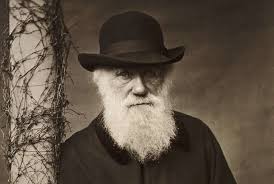There is a stream.
Catagory:Tell story
Author:Daniel kibret
Posted Date:12/16/2024
Posted By:utopia online
I am in a taxi traveling from Arat Kilo to Mexico City. I am sitting in the second seat on the left side of the passenger seat. As we arrived at the intersection in front of the train station, where traffic jams are often observed, a young woman who was next to me asked if we had arrived at the train station. I asked her if she had arrived at the station without her knowing it, and I pointed out the window on the left side of the taxi, saying, "We have arrived." Without lifting my index finger from the window, I said, "Is there a taxi driver?" in a voice that seemed to be asking not the driver in the taxi we were in, but the taxi driver in the taxi that was turning right and heading towards Churchill Street. We were all shocked by the speed and force of her voice. Especially me... How can I tell you! I thought it was because she spoke to me in a soft and gentle voice at first and I didn't expect such a voice at that place. The assistant, who was resting his left hand full of silver and coins on the front seat backrest and his right hand on the partially open taxi door window, looked like a peppercorn in shock or anger. He turned around and remained silent. The driver, who had just arrived, said, "You can't get off here." The girl stopped talking to the driver and shouted at the assistant, "Open the door for me." The assistant said, "You're kidding me, I won't open it." Whether she heard it or not, he said, "You can get off at Commerce Station." Before he could finish, he said, "Did I tell you I'm going to Commerce Station, not the train station? Turn around!" She struggled to open the door. The driver pulled the taxi over to the right and slowed down, “Why did you hit me again today? You can’t get off at Commerce, can you?” she said in an angry tone. “You have to get off at Commerce, I go to the train station, so I get off at the train station. Why don’t you understand?” She got even angrier. None of the passengers, including me, dared to speak to her. We all looked like we were watching a movie. We watched her when she spoke, the driver when he spoke, and the assistant when he spoke. “If you drop my sister off here, I will sue you! You will sue me,” said the driver, who had not been able to handle the girl. “Who is going to sue you for what I got off at? Don’t I have the right to get off where I want?” She continued to ask questions to the driver, who was confused by her situation. As she said this, although she seemed to be educated by her speech and situation, it was clear that this was not her first time coming to Addis Ababa, and that the sign she had been told to get off at the train station and not pass by!I intervened, assuming that the driver and assistant thought that the place called Commerce Commerce was too far from the train station and that she had little knowledge of road transport laws. The driver and his assistant said nothing to hurt her, that despite the difficulty in expressing themselves, their idea was correct, that the place called Commerce was also close (I showed her through the windshield of the taxi), that the place where she wanted to get off was prohibited by law for taxi passengers to get on or off, and that if necessary, I would get off with her and take her back to the train station. I promised to release the assistant's hand that was holding her shirt and put it down forcibly. Sometimes when I think about it, I feel that there are skills that should not be included in our curriculum but that play a big role in carrying out our daily activities wisely and carefully. For example, basic knowledge about the basic concepts of modes of transportation (air, land, and sea) and their use, as well as national and international laws and regulations, can be provided. We often hear about traffic accidents and the resulting physical disabilities, loss of life and property damage through various information or news outlets. We used to hear such information yesterday and we are still hearing it today. What should we hear tomorrow? Currently, more than 2,000 people lose their lives in traffic accidents in our country every year. More than 8,000 of them suffer serious and minor physical injuries. Property worth more than half a billion birr is destroyed. The reasons often cited as the cause of car accidents are: driver incompetence, poor road conditions, vehicle breakdowns and pedestrian negligence. The key to these reasons is the lack of knowledge. Basic driving knowledge supported by practical experience is needed for the driver, appropriate and quality road construction knowledge and skills for road builders and contractors, knowledge about the main components of the vehicle and their advantages and disadvantages for vehicle owners, and basic road use knowledge for pedestrians. This kind of knowledge is not available overnight. How can a press release issued by the authorities after an accident be used to raise public awareness? Books that provide basic understanding of road use for both drivers and passengers are published by individuals, driver training institutions, and the Road Transport Authority from time to time. The answer is who the user is, who wants to get a driver's license. But pedestrians should also know and be guided by it. Let's take an example of a guideline found in all books based on our country's road system. It states that pedestrians should walk on the left lane on roads open to vehicles. So how effective can this guideline be if only the drivers know it if the pedestrians do not read the book and apply it? The driver knows the law and the system, but the passenger travels by chance or by instinct. Then, as we saw in our introduction, we argue that we are happy or that we should drop off the taxi at the place we want. At other times, we waste time waiting for a taxi by standing in a place where there is no taxi stand and leaning on the tape that prevents taxis from stopping. After all, some taxi drivers do not drive by experience, but by understanding the instructions and road signs in the books. Because they read the book only for the test. If it were not for this, we would not have seen many of our people losing their lives, losing their lives, and destroying their property due to minor mistakes. Some drivers, on the other hand, have combined knowledge with ethics and are proud of their profession. Why did this difference occur? Why is it that the only thing that unites all drivers is the clutch pedal when changing gears? Where did the driver who is forced to wear a seat belt to protect the driver and passenger from accidents and who is punished for this reason come from? Who sent us a driver who does not respect traffic laws unless he sees a traffic policeman? Where did the driver who tries to narrow the difference in the number of passengers between taxis and Anbesa buses by putting a sign in his taxi that says “If there is love, a taxi will also be a bus” come from? At least, those who consider the pedestrian crossing as a tattoo instead of giving priority to pedestrians at the pedestrian crossing, saying that they know the road usage rules better than pedestrians, who drive on roads where there are schools and are crowded, and who lose patience with the endless minutes, who have great goals for themselves, their families, and their country, leave our people behind.Who let the drivers who left us alone? There are also pedestrians who are as likely to get hurt as drivers and cause harm to others and property damage. After all, we all know how to start a fire, we have all been burned at least once. We are told that fire burns, and we believe it, and we protect ourselves from fire. We do not necessarily have to be warned once in advance to protect ourselves from traffic accidents. We do not need a driver's license to know that a car can hit a person, injure a person, and then kill him when he passes by. Just being a human being is more than enough to know this and to consider it. Because we see how even some animals run away when a car comes towards them on the road. How can a person, created in the Trinity, not consider better than an animal, and that is for his own life. But sometimes we are seen as inferior to an animal. There are some roads that are designed to be used in one direction only, but they are used by vehicles coming in both directions. On these roads, they slow down and pass carefully, especially when cars are coming from both directions. No one is expected to tell a pedestrian what precautions he should take on such roads. If he is supposed to walk on the asphalt with the cars, as if he has an oath to not leave the asphalt, if he is injured while struggling to stay on the asphalt, should he say that the car hit him or hit him or even hit him? Have you ever met someone who does not believe or seems to doubt that a car can hit and kill a person? Some of them do not. What should be said about those who are carrying things, carrying children, talking on mobile phones, hugging, holding hands, playing in threes or fours, and who do not step out of the way or do not put out their license plates? Are they following the anti-6 anti-car? There are those who consider crossing the zebra crossing as a guarantee and try to cross the road without caution. I remember reading an article in a taxi that said, “Only a fool who does not learn from his mistakes is a fool.” I do not agree with this article. Because how can a person who has been in a serious accident learn from his mistake by crossing the road without looking left and right, without using the pedestrian crossing, and without taking the necessary precautions? Can he say that he regrets his mistake and undo the damage? In my opinion, most drivers and pedestrians do not lack basic understanding of road transport. What alternative is there to eliminate this lack of awareness in schools, like other forms of education? What if we had a form of education that could provide sufficient information about the types of transportation, the nature of cars, their types, their operation, their use, their management, their marketing, the types of engines with their specifications, the type of tires, the engineering concepts behind each type of transportation, road use guidelines, etc., in a way that focused on the students' ability to think, starting from the first grade? If such education were given from the bottom up, it would also play a major role in attracting students to various engineering professions and instilling a good attitude. It is clear how effective this basic knowledge will be for students who enter various technical and vocational training institutions after completing the 10th grade and how it will help them to do various creative works. Sisters and brothers, do you think we should not include this subject in our curriculum? Please listen to us.He should never be told by another person that he should be careful. If he is supposed to walk on the asphalt, as if he is under oath, and if he is injured while struggling to keep on the asphalt, should he say that the car hit him or that he hit him or that he was hit? Have you ever met someone who does not believe or seems to doubt that a car can hit and kill a person? Some of them do not. Those who are carrying things, holding children, talking on mobile phones, hugging, holding hands, and playing a hot game in three or four groups on a narrow road, what should be said? Are they following the anti-6 anti-car? There are those who consider crossing the zebra crossing as a guarantee and try to cross the road without caution. I remember reading an article in a taxi that said, “Only a fool who does not learn from his mistakes is a fool.” I do not agree with this article. Because how can a person who has been in a serious accident learn from his mistake by crossing the road without looking left and right, without using the pedestrian crossing, and without taking the necessary precautions? Can he say that he regrets his mistake and undo the damage? In my opinion, most drivers and pedestrians do not lack basic understanding of road transport. What alternative is there to eliminate this lack of awareness in schools, like other forms of education? What if we had a form of education that could provide sufficient information about the types of transportation, the nature of cars, their types, their operation, their use, their management, their marketing, the types of engines with their specifications, the type of tires, the engineering concepts behind each type of transportation, road use guidelines, etc., in a way that focused on the students' ability to think, starting from the first grade? If such education were given from the bottom up, it would also play a major role in attracting students to various engineering professions and instilling a good attitude. It is clear how effective this basic knowledge will be for students who enter various technical and vocational training institutions after completing the 10th grade and how it will help them to do various creative works. Sisters and brothers, do you think we should not include this subject in our curriculum? Please listen to us.He should never be told by another person that he should be careful. If he is supposed to walk on the asphalt, as if he is under oath, and if he is injured while struggling to keep on the asphalt, should he say that the car hit him or that he hit him or that he was hit? Have you ever met someone who does not believe or seems to doubt that a car can hit and kill a person? Some of them do not. Those who are carrying things, holding children, talking on mobile phones, hugging, holding hands, and playing a hot game in three or four groups on a narrow road, what should be said? Are they following the anti-6 anti-car? There are those who consider crossing the zebra crossing as a guarantee and try to cross the road without caution. I remember reading an article in a taxi that said, “Only a fool who does not learn from his mistakes is a fool.” I do not agree with this article. Because how can a person who has been in a serious accident learn from his mistake by crossing the road without looking left and right, without using the pedestrian crossing, and without taking the necessary precautions? Can he say that he regrets his mistake and undo the damage? In my opinion, most drivers and pedestrians do not lack basic understanding of road transport. What alternative is there to eliminate this lack of awareness in schools, like other forms of education? What if we had a form of education that could provide sufficient information about the types of transportation, the nature of cars, their types, their operation, their use, their management, their marketing, the types of engines with their specifications, the type of tires, the engineering concepts behind each type of transportation, road use guidelines, etc., in a way that focused on the students' ability to think, starting from the first grade? If such education were given from the bottom up, it would play a major role in attracting students to various engineering professions and instilling a good attitude. It is clear how effective this basic knowledge will be for students who enter various technical and vocational training institutions after completing the 10th grade and how it will help them to do various creative works. Sisters and brothers, do you think we should not include this subject in our curriculum? Please listen to us.Do you think we shouldn't include this subject in our curriculum? Please let us know.Do you think we shouldn't include this subject in our curriculum? Please let us know.


.jpg)














 👁 :
👁 :
 👁 :8
👁 :8
0.jpg) 👁 :
👁 :
 👁 :109
👁 :109
 👁 :52
👁 :52
 👁 :60
👁 :60
 👁 :499
👁 :499